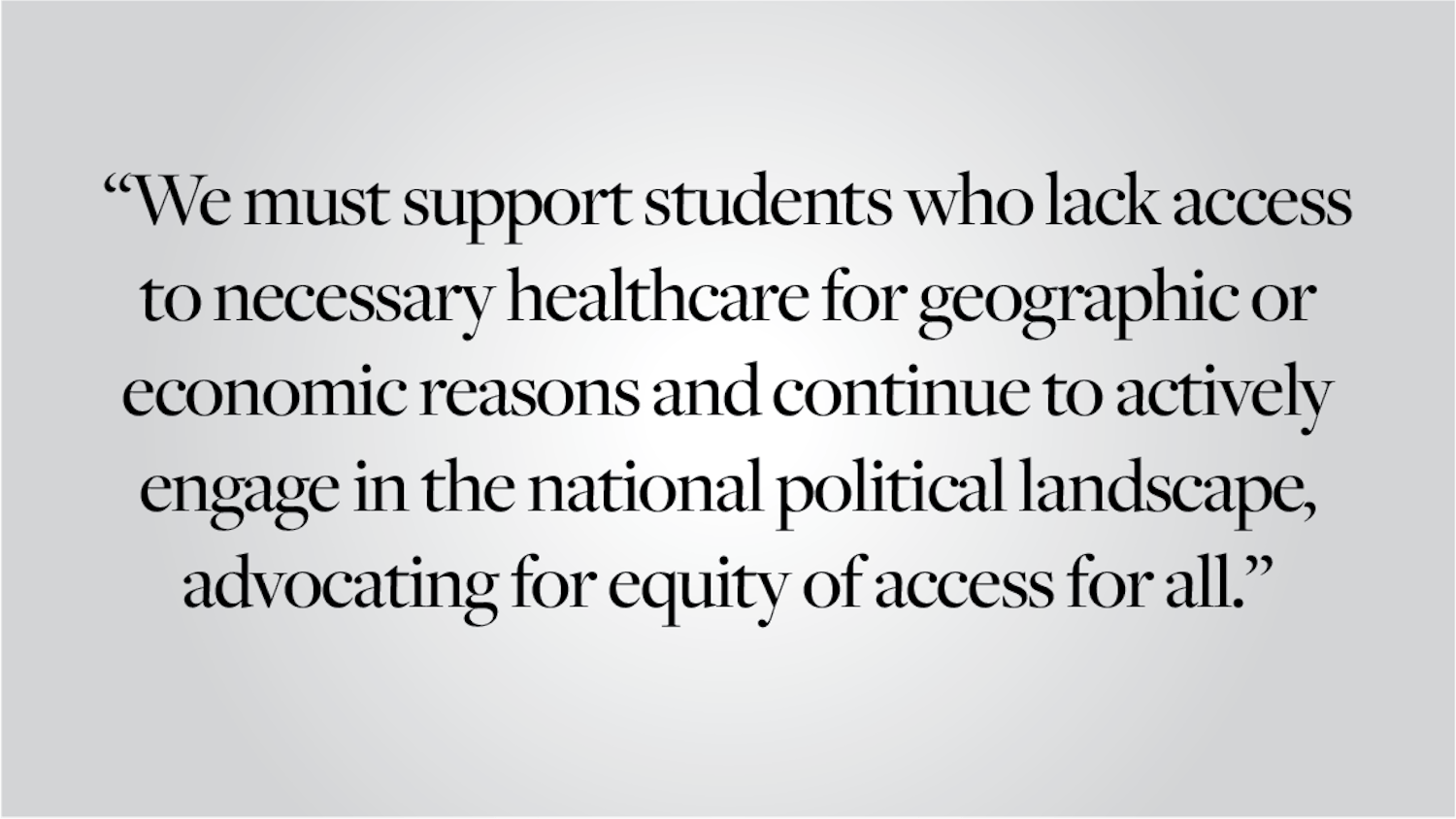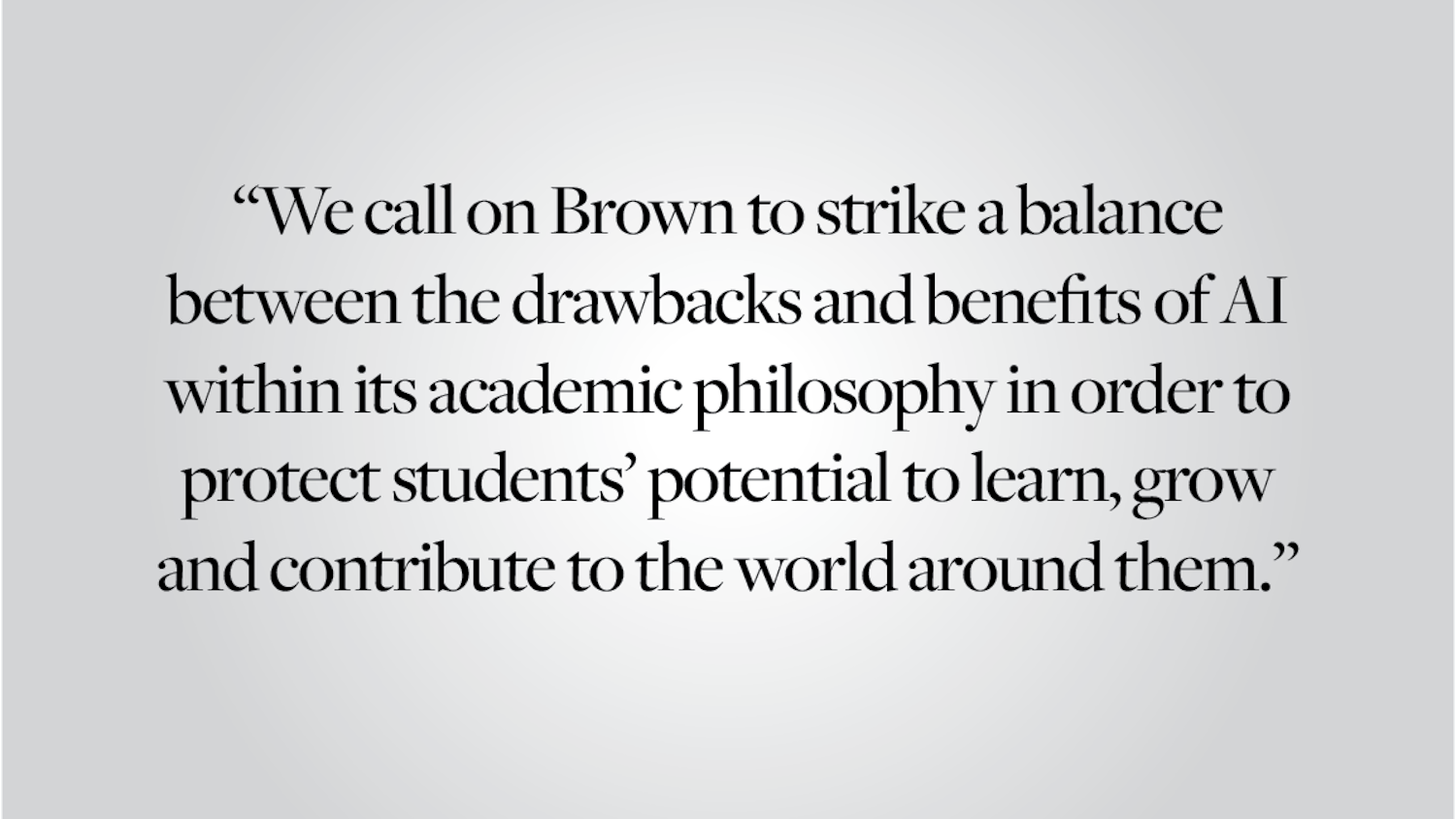Despite common beliefs that Brown’s campus is more or less apathetic toward religion or even that religious faith is at odds with intellectualism, campus life of late seems to suggest a different trend, for instance this week’s first annual Jewish Film Festival. Still, there is a feeling among the student population that there is some tension between religiously affiliated and non-affiliated students. As Zach Ingber ’15 claims in a recent Herald opinion column (“Shibboleth,” Jan. 27), “it is still taboo to be religious at Brown.” The causes of such notions are complex, but it is important to focus on the ways that we can rethink the role of religion on campus to create a safe and positive atmosphere to best accommodate religiously affiliated students, who constitute a majority of Brown’s student population.
The Herald’s student poll last semester revealed that 62 percent of students consider themselves to be affiliated with a religion, compared to 38 percent who consider themselves atheist or agnostic. Since a majority of the community does indeed associate with a religion, religiously affiliated events at Brown should not be considered anti-intellectual or dogmatic, but rather a space for students of diverse backgrounds to explore different religious beliefs and cultures. We believe it is important that the University continue to hold events and discussions that promote religious curiosity and pluralism. This week, for example, Brown/RISD Hillel is hosting a Jewish Film Festival at the Perry and Marty Granoff Center for the Creative Arts and Wilson Hall. The festival will include three films as well as an academic arena to discuss those films in the wider context of Judaism and Jewish culture. This exploration of religion through the arts is one way in which Brown can continue to acknowledge religion and its place in the academic sphere.
While religious spaces do exist on campus, including the Brown-RISD Catholic Community, Hillel and the Muslim Students Association, these organizations may often be considered more closed off to students who do not belong. Artistic events that incorporate religion such as the Jewish Film Festival may offer more inclusive settings where students feel welcome to join the discussion, regardless of their personal religious affiliation. Such events, which stress the arts, food and creative forums, provide good alternatives to more structured religious gatherings. Certainly these events offer a forum for those equally uninterested in addressing religion in a classroom setting. While the University’s Department of Religious Studies offers a plethora of introductory and advanced classes about religious history, theology and practice, many students might desire a less formal setting to discuss religion.
The Jewish Film Festival is just one example of culturally religious events that are offered on campus, and it is important to make such events known to students. We strongly value a continuing dialogue on campus concerning religion and how it relates to other intellectual pursuits. Just as the Jewish Film Festival connects art and religion, the University offers events and lectures that explore the connection between religion and a variety of academic fields, including science, law and philosophy. We encourage Brown to remain a safe space for members of all religious affiliations and believe it is fundamental to the success of a pluralistic community.
Editorials are written by The Herald’s editorial page board: its editors, Matt Brundage ’15 and Rachel Occhiogrosso ’14, and its members, Hannah Loewentheil ’14 and Thomas Nath ’16. Send comments to editorials@browndailyherald.com.
ADVERTISEMENT




